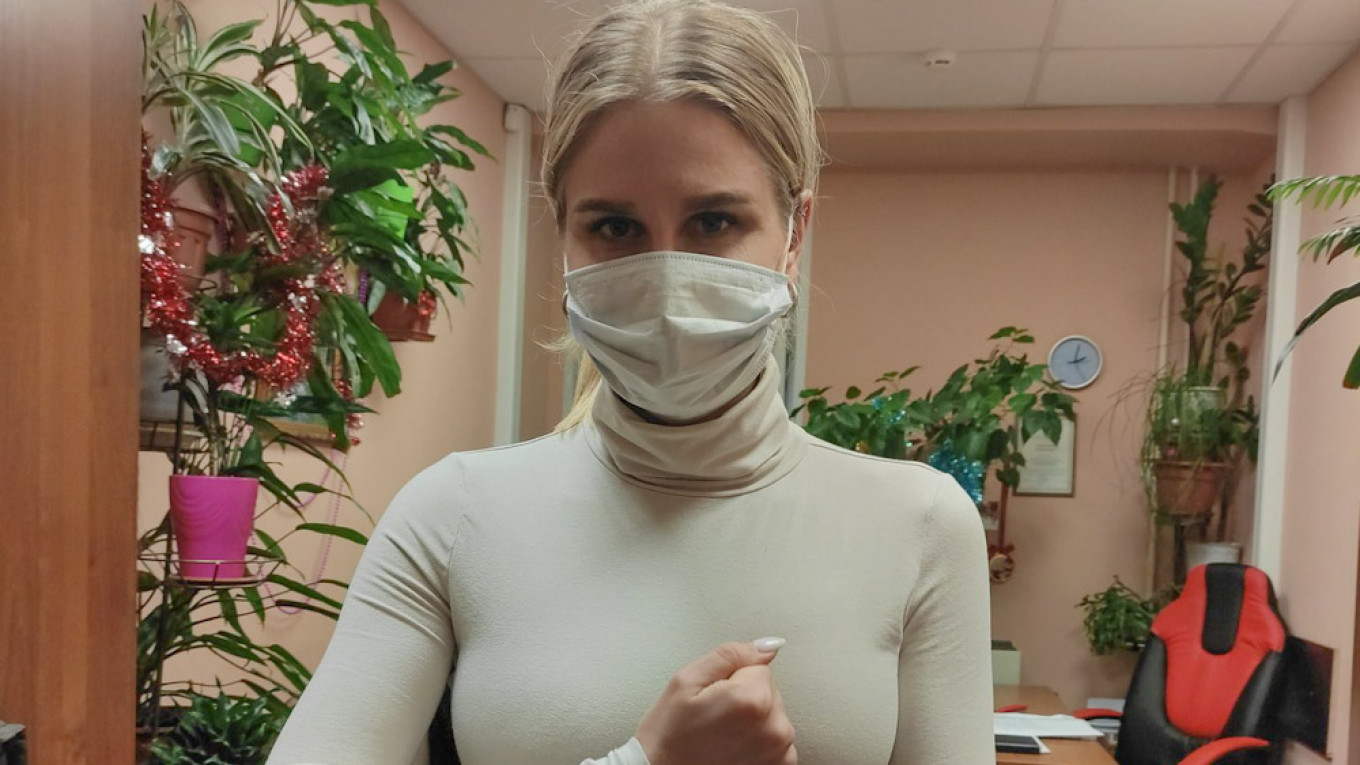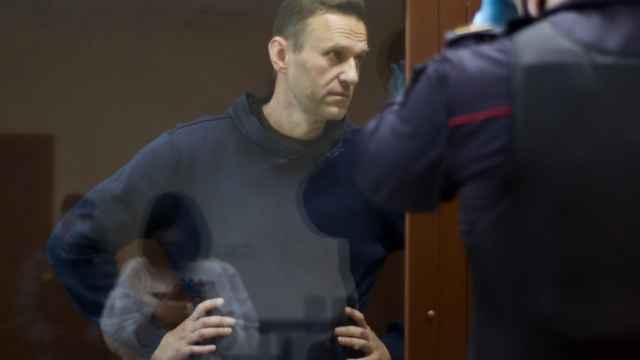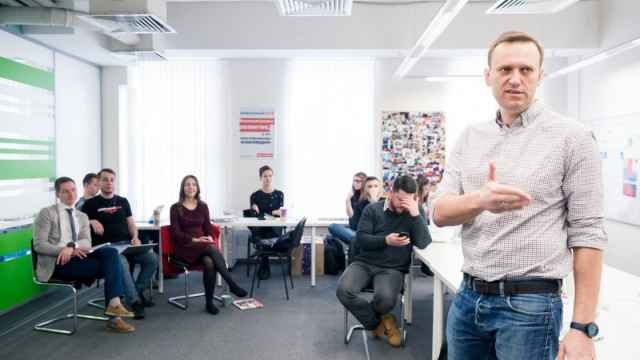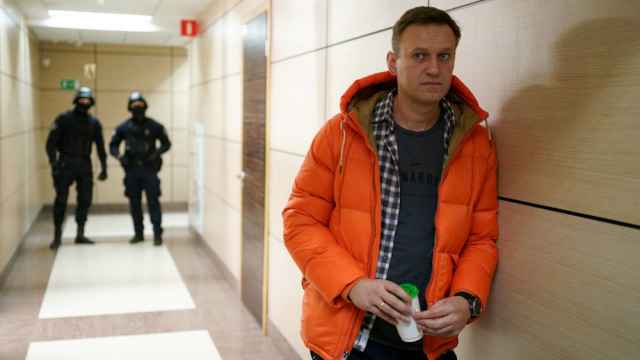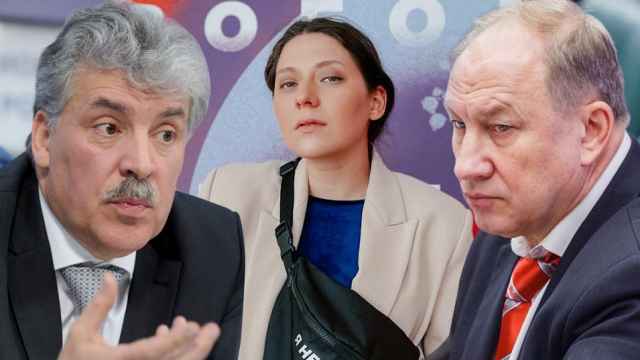Russian opposition leader Alexei Navalny’s associate Lyubov Sobol has been detained outside the home of an alleged chemical weapons expert implicated in his poisoning, media reported late Monday.
Anti-Corruption Foundation (FBK) lawyer Sobol said she wanted to speak with alleged Federal Security Service (FSB) agent Konstantin Kudryavtsev, whom Navalny said he had tricked into admitting the poisoning attempt on a phone call. Video of the call gained 11 million views in the 18 hours after it was published Monday.
Live news footage showed a brief scuffle breaking out and officers bundling Sobol into a police van after she stepped out of a car in Kudryavtsev’s alleged courtyard on the outskirts of Moscow. According to video she livestreamed on her Twitter account, police surrounded her car and later detained her.
Riot police were shown pushing away journalists attempting to film Sobol’s arrest; officers were also seen in separate videos blocking journalists from attempting to access Kudryavtsev’s alleged apartment. Journalists who had earlier arrived at the scene rang the doorbell to Kudryavtsev's reported apartment, but no one came to the door.
“Lyubov Sobol was held at the station for more than five hours and was only released late at night. Three Sobol campaign staff were kept overnight,” Navalny’s team said in a tweet early Tuesday.
Following initial suggestions that she faced questioning under criminal charges of home invasion, Navalny’s team said Sobol was charged with an administrative offense of refusing to follow police orders.
Sobol herself said she was released without charges.
Kudryavtsev, in a Dec. 14 phone call where Navalny said he disguised his number and posed as a senior security official in charge of the debriefing, told Navalny that other agents had placed the poison in Navalny’s underwear.
He detailed how he and another FSB agent had flown to Omsk after the poisoning and removed any trace of the poison, which European scientists determined to be the Novichok nerve agent.
The FSB late Monday described the phone call as a "provocation aimed at discrediting" the agency.
It said that the phone conversation "about the alleged actions against" Navalny would not have been possible without "the support of foreign intelligence services," adding that the video the Kremlin critic published of the call was "fake."
AFP contributed reporting.
A Message from The Moscow Times:
Dear readers,
We are facing unprecedented challenges. Russia's Prosecutor General's Office has designated The Moscow Times as an "undesirable" organization, criminalizing our work and putting our staff at risk of prosecution. This follows our earlier unjust labeling as a "foreign agent."
These actions are direct attempts to silence independent journalism in Russia. The authorities claim our work "discredits the decisions of the Russian leadership." We see things differently: we strive to provide accurate, unbiased reporting on Russia.
We, the journalists of The Moscow Times, refuse to be silenced. But to continue our work, we need your help.
Your support, no matter how small, makes a world of difference. If you can, please support us monthly starting from just $2. It's quick to set up, and every contribution makes a significant impact.
By supporting The Moscow Times, you're defending open, independent journalism in the face of repression. Thank you for standing with us.
Remind me later.


